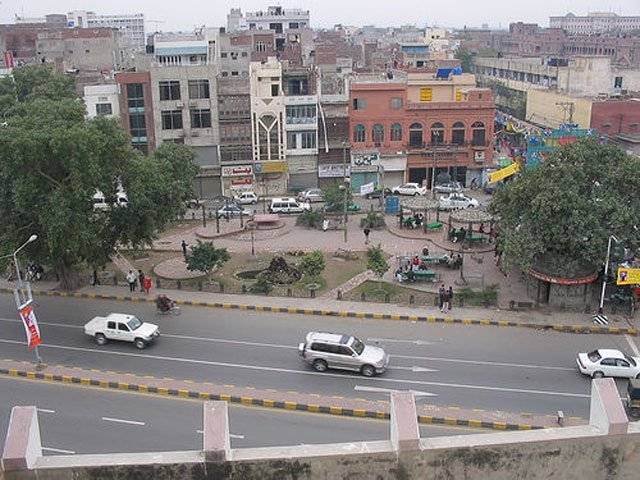LAHORE Shahrah-e-Quaid-e-Azam, also popularly known as The Mall and Thandi Sark of the yore days, is certainly one of the busiest arteries of the City, and consequently, since the highest legislative House of the province is also located along this road, it has become a favourite place of the protestors. Besides being a centre of public and private offices, including that of the Chief Ministers Secretariat, it is also heavily occupied business area as well, which has seen many bleak days owing to protests during the last few years, especially February 14 2006 when it made headlines, The Mall burnt. However, it has re-enlivened to be a business hub again, but facing serious crisis whenever protestors reach The Mall to press for their demands. Third, this is the road which virtually divides the city into two halves. Resultantly, if this path is blocked by protestors or choked cause of traffic congestion, then the rest of the city on both sides is practically closed as well. This becomes a huge issue when the Punjab Assembly is in session, and every body tries to reach the facing Square as mostly protestors believe that they would be heard by the legislators. In quite a few instances, after hearing news about protestors outside the Assembly, the Chair usually sends a group of MPAs to talk to them. Secondly, mediamen, present in the Assembly premises, give them the coverage, which is an added factor for protestors reaching the Faisal Square. It also becomes all too important for the legislators since they would not be able to go back to their homes if the front road of the Assembly would remain blocked. However, this has damaged the solution of the government since it has specified Nasir Bagh as a place for holding protests, but rarely has it been used for this purpose. Certainly, seeing themselves heard, even a handful of protestors reach The Mall, while the traffic police being hyper-sensitive for reasons better known to itself, immediately stops traffic moving to the road, observed Deputy Parliamentary Leader PPP Shaukat Mahmood Basra, who added that the city traffic police did not have any plan to meet such an exigency. If one could use common sense, then at least three roads can be kept functioning, he observed. Recently returned from Australia Chief Traffic Officer Captain (retd) Syed Ahmed Mobin was not available to dilate upon the traffic plan and offer his comments about the situation since his cell was switched off. On the other hand, representative bodies of the businessmen have made repeated efforts for getting the artery declared as 'no protest zone, but it has not been actualised by all the governments, including the incumbent one. They had to close down their shops and business immediately, and if not, they remain on their toes anticipating that either the mob could go out of control and turn violent like February 14 or the police could resort to lathi charge and use tear gas. Secondly, once the protestors are around, the customers cannot reach the shops owing to roads closed for traffic. Now the situation is that even if a handful of protestors reach the Charing Cross or the Faisal Chowk (Square), the police immediately barricade all roads leading to the Square, which causes traffic congestion at all other roads despite the so-called diversions. Whatever the case may be, when the roads are already ever-shrinking because of encroachments, and the traffic burden is increasing with every passing day, then these diversions cause more problems. However, the Punjab Assembly is yet indecisive about it. During the 23rd session of the Assembly Forward Bloc member Shaikh Allauddin moved an Adjournment Motion seeking a remedy to this. While agreeing to the assertions made by the Shaikh, Law Minister Rana Sanaullah Khan very discreetly got the Motion pended, maintaining that all stakeholders had to be brought on board for resolving the issue. Believably, the chapter has been put on the backburner, which means that the masses and business will keep on suffering.
Friday, April 19, 2024
Protests denude Mall of its business beauty

US vetoes Palestine’s bid for full UN membership
8:27 AM | April 19, 2024
20pc Discos employees involved in power theft: Minister
April 19, 2024
Five govt officials shot dead in D I Khan
April 19, 2024
Parvez Elahi’s indictment delayed again in two cases
April 19, 2024
Hepatitis Challenge
April 18, 2024
IMF Predictions
April 18, 2024
Wheat War
April 18, 2024
Rail Revival
April 17, 2024
Addressing Climate Change
April 17, 2024
Justice denied
April 18, 2024
AI dilemmas unveiled
April 18, 2024
Tax tangle
April 18, 2024
Workforce inequality
April 17, 2024
New partnerships
April 17, 2024
ePaper - Nawaiwaqt
Advertisement
Nawaiwaqt Group | Copyright © 2024





